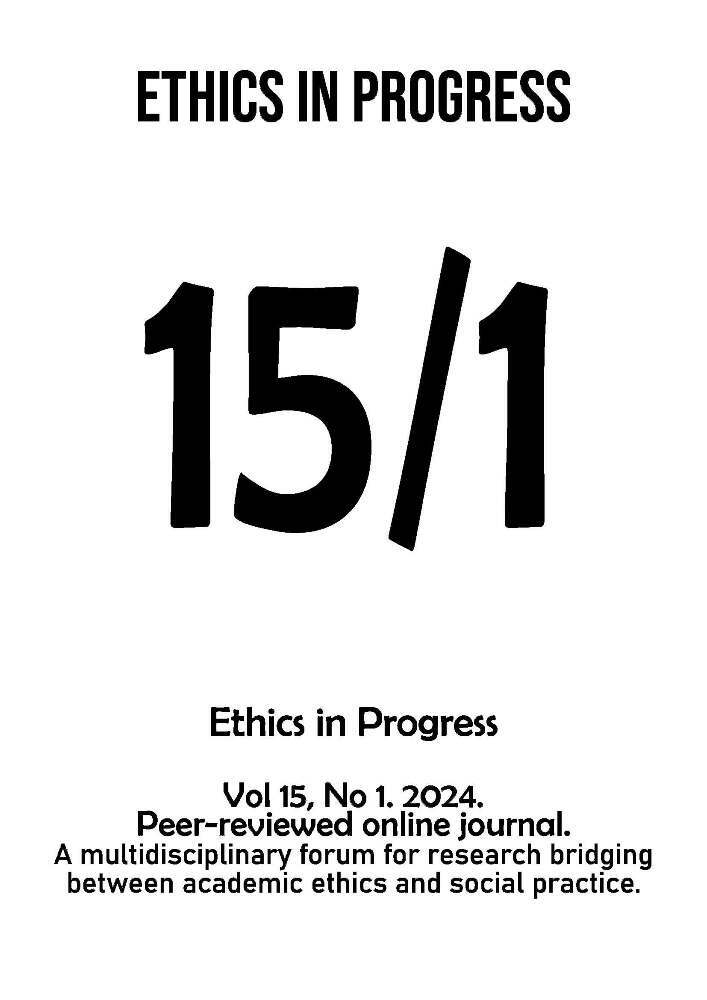Abstract
This paper critically evaluates the classification of research-related fraudulent activities, with an emphasis on the specific misconduct falsification. The analysis begins by interrogating the assumption that all acts of fraud in research are intentional, suggesting that some instances may inadvertently arise during the course of scholarly activities. Misconducts like fabrication and falsification are categorized as fraudulent primarily due to their generation during research activities and their direct contribution to the distortion of scientific knowledge. Plagiarism, while deceptive, does not necessarily originate from the research process nor lead directly to such distortion, and therefore is not classified as de facto fraud. The paper proposes that the definition of falsification – as established by the PHS – requires refinement to prevent wrongful allegations and convictions, enhance transparency, and offer clearer guidelines. This nuanced understanding is vital for safeguarding the credibility of the research process and protecting scientists from unfounded career-damaging accusations. Ultimately, this paper advocates for a clearer definition of falsification to protect the integrity of scientific research and prevent the miscarriage of justice.
References
Bayley P., Salmon D., Bondi M., et al. 2000. “Comparison of the Serial Position Effect in Very Mild Alzheimer’s Disease, Mild Alzheimer’s Disease, and Amnesia Associated with Electroconvulsive Therapy,” Journal of the International Neuropsychological Society 6(3):290–298. DOI: https://doi.org/10.1017/S1355617700633040
Bhatarah P., Ward G., & Tan L. 2008. “Examining the Relationship between Free Recall and Immediate Serial Recall: The Serial Nature of Recall and the Effect of Test Expectancy,” Memory & Cognition 36(1):20–34. DOI: https://doi.org/10.3758/MC.36.1.20
Boslaugh S. 2012. Statistics in a Nutshell. O’Reilly Media, Kindle; Version 6.
Boylan M. & Johnson C. 2010. Philosophy: Fictive Narrative, Primary Texts, and Responsive Writing. Boulder: Westview Press.
Cook R. T. 2009. A Dictionary of Philosophical Logic. Edinburgh: Edinburgh University Press.
Cunningham D. W. 2012. A Logical Introduction to Proof. New York: Springer. DOI: https://doi.org/10.1007/978-1-4614-3631-7
Fanelli D. 2009. “How Many Scientists Fabricate and Falsify Research? A Systematic Review and meta-Analysis of Survey Data,” PloSOne 4(5), article no. e5738. DOI: https://doi.org/10.1371/journal.pone.0005738
Fellbaum Ch. 1998. WordNet: An Electronic Lexical Database. Available online at: http://www.easydefine.com DOI: https://doi.org/10.7551/mitpress/7287.001.0001
Frensch P. 1994. “Composition During Serial Learning: A Serial Position Effect,” Journal of Experimental Psychology Learning Memory and Cognition 20(2):423–442. DOI: https://doi.org/10.1037//0278-7393.20.2.423
Gardner W., Lidz C. W., & Hartwig K. C. 2005. “Authors’ Reports about Research Integrity Problems in Clinical Trials,” Contemporary Clinical Trials 26(2):244–251. DOI: https://doi.org/10.1016/j.cct.2004.11.013
Gardner R., Nappe G., & Wallace W. 1968. “Order Preference in Serial Learning,” Psychonomic Science 13(2):95–96. DOI: https://doi.org/10.3758/BF03342427
Garson J. W. 2014. Modal Logic for Philosophers. New York: Cambridge University Press. DOI: https://doi.org/10.1017/CBO9781139342117
George S. L. 2016. “Research Misconduct and Data Fraud in Clinical Trials: Prevalence and Causal Factors,” International Journal of Clinical Oncology 21(1):15–21. DOI: https://doi.org/10.1007/s10147-015-0887-3
Golomb J., Peelle J., Addis K., et al. 2008. “Effects of Adult Aging on Utilization of Temporal and Semantic Associations During Free and Serial Recall,” Memory & Cognition 36(5):947–956. DOI: https://doi.org/10.3758/MC.36.5.947
Habermann B., Broome M., & Pryor E. 2010. “Actual Occurrences of Scientific Misconduct: A National Survey of Research Coordinators,” PsycEXTRA Dataset.
Hama A. 2018. “False Allegations: Investigative and Forensic Issues in Fraudulent Reports of Crime,” The Journal of Social, Political, and Economic Studies 43(3/4), pp. 344+.
Hellman H. 1998. Great Frauds in Science: Ten of the Liveliest Disputes Ever. New York: Wiley.
Hey E. & Chalmers I. 2010. “Mis-investigating Alleged Research Misconduct Can Cause Widespread, Unpredictable Damage,” Journal of RSM 103(4):133–138. DOI: https://doi.org/10.1258/jrsm.2010.09k045
Hofrichter N., Dick S., Riemer T. et al. 2014. “Impact of Comorbid Depression on Serial Position Effects in Alzheimer’s Disease,” Geropsychology 27(4):161–169. DOI: https://doi.org/10.1024/1662-9647/a000115
Kahana M. 1996. “Associative Retrieval Processes in Free Recall,” Memory & Cognition 24(1):103–109. DOI: https://doi.org/10.3758/BF03197276
Kahana M., Mollison M., & Addis K. 2009. “Positional Cues in Serial Learning: The Spin-List Technique,” Memory & Cognition 38(1):92–101. DOI: https://doi.org/10.3758/MC.38.1.92
Ma S., Zhang Y., Liu N. et al. 2019. “Altered Transposition Asymmetry in Serial Ordering in Early Parkinson’s Disease,” Parkinsonism & Related Disorders 62:62–67. DOI: https://doi.org/10.1016/j.parkreldis.2019.01.028
Macrina F. L. 2014. Scientific Integrity: Text and Cases in Responsible Conduct of Research. 4th Ed. Washington, DC: ASM Press.
Martella R. C. 2013. Understanding and Interpreting Educational Research. Kindle 6 Version.
Merriam-Webster 2017. Definition of Allege. Available online at: www.Merriam-Webster.com
Meyer A., Handabaka I., Ehrensperger M. et al. 2020. “A Comparison of Serial Position Effects in Patients with Mild Cognitive Impairment Due to Parkinson’s Disease or to Alzheimer’s Disease,” Dementia and Geriatric Cognitive Disorders 49(2):170–178. DOI: https://doi.org/10.1159/000507757
Michalek A. M. et al. 2010. “The Costs and Underappreciated Consequences of Research Misconduct: A Case Study,” PLoS Medicine 7(8), article no. e1000318. DOI: https://doi.org/10.1371/journal.pmed.1000318
Murdock B. 1962. “The Serial Position Effect of Free Recall,” Journal of Experimental Psychology 64(5):482–488. DOI: https://doi.org/10.1037/h0045106
Oxford 2017. New Oxford American Dictionary. Oxford University Press. Available online at: www.oxfordreference.com
Oxford 2017. Oxford American Writer’s Thesaurus. OUP Oxford.
Pediaditakis N. 2014. “The Association between Major Mental Disorders and Geniuses,” The Psychiatric Times 31:1–4.
Peters P. 2004a. The Cambridge Guide to English Usage. Cambridge University Press. Available online at: http://ebookcentral.proquest.com
Peters P. (Ed.) 2004b. The Cambridge Guide to English Usage. London, U.K.: Cambridge University Press. Available online at: http://ebookcentral.proquest.com
Popper K. R. 1959. Conjectures and Refutations: The Growth of Scientific Knowledge. London, U.K.: Routledge & Kegan Paul.
Pritchard M. & Goldfarb T. 2016. OEC – The Milikan Case – Ethics. Available online at: http://www.onlineethics.org/Resources/precollege/scienceclass/sectone/chapt4/cs2/28731.aspx#publicationContent
Public Health 2005. eCFR Code of Federal Regulations. Available online at: http://www.ecfr.gov/cgi-bin/
License
Copyright (c) 2024 La Shun L. Carroll

This work is licensed under a Creative Commons Attribution-ShareAlike 4.0 International License.





